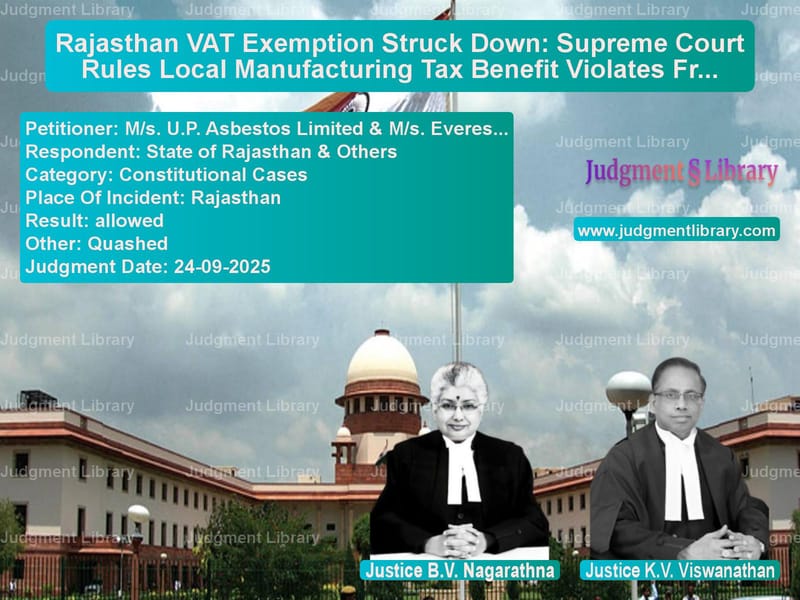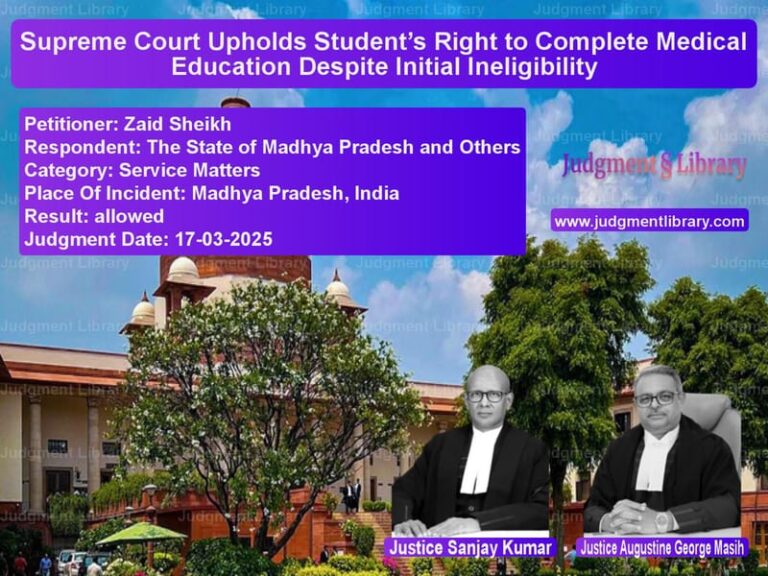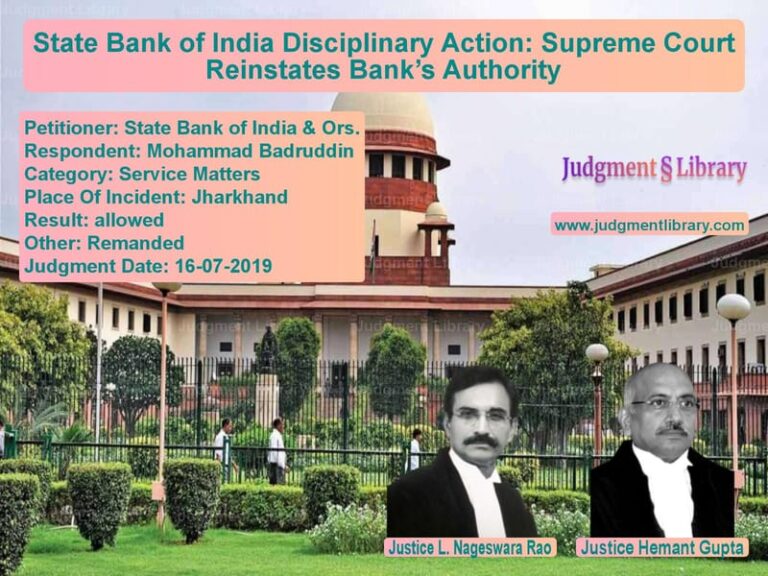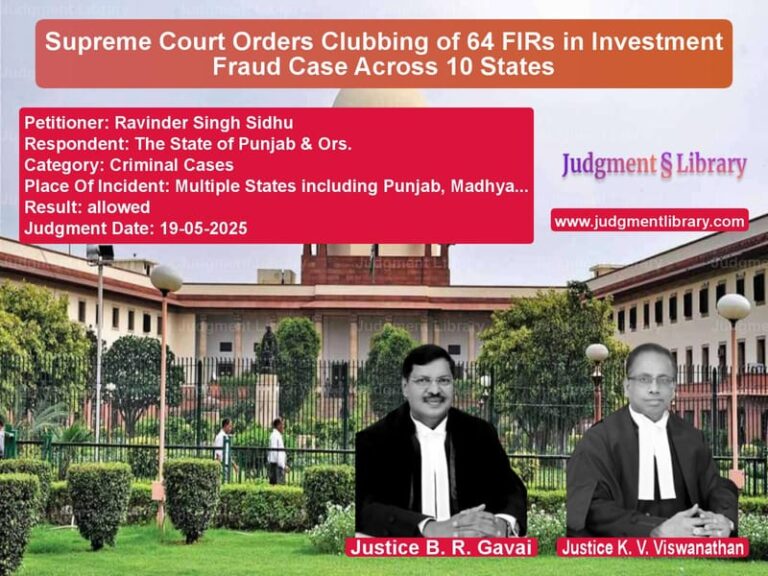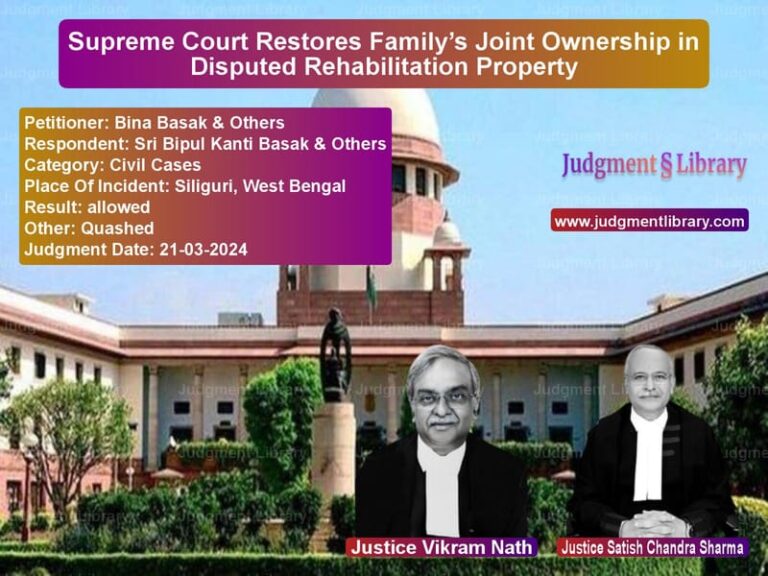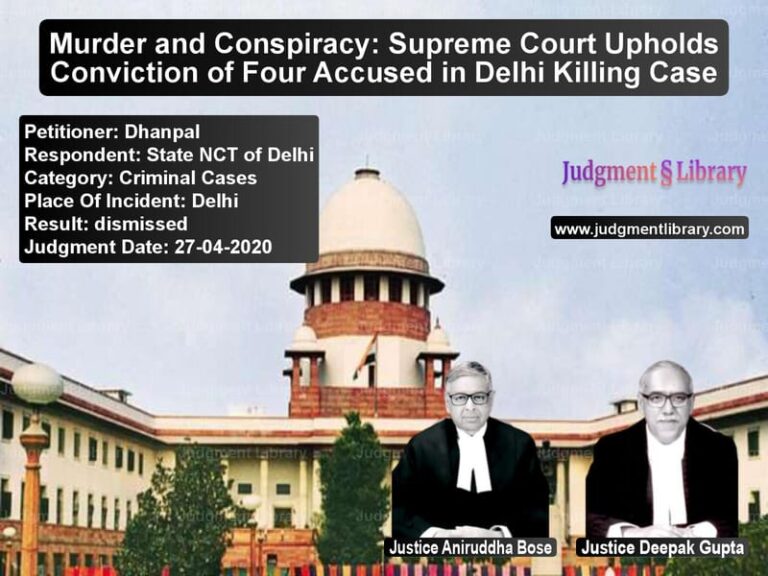Rajasthan VAT Exemption Struck Down: Supreme Court Rules Local Manufacturing Tax Benefit Violates Free Trade
In a landmark judgment that reinforces the constitutional principle of free trade across India, the Supreme Court has delivered a significant verdict striking down a Rajasthan government notification that provided tax exemptions exclusively to locally manufactured asbestos products. The decision, which came on September 24, 2025, addresses a fundamental question about the balance between state autonomy and national economic unity – can state governments use taxation powers to create preferential treatment for local industries that disadvantages manufacturers from other states?
The legal battle centered around Notification No. S.O.377 dated March 9, 2007, issued by the Government of Rajasthan under the Rajasthan Value Added Tax Act, 2003. This notification exempted from payment of VAT the sale of asbestos cement sheets and bricks manufactured in Rajasthan having fly ash content of 25% or more by weight. The exemption came with specific conditions – it applied only to dealers who commenced commercial production in the state by December 31, 2006, and was available only until January 23, 2010.
The Constitutional Challenge
The appellants, M/s. U.P. Asbestos Limited and M/s. Everest Industries Limited, manufacturers of asbestos cement products with manufacturing units outside Rajasthan but sales depots within the state, challenged this notification as unconstitutional. They argued that the exemption created an unfair advantage for local manufacturers and violated the principles of free trade enshrined in the Constitution.
Senior counsel for the appellants strenuously argued that “the impugned notification is discriminatory in nature and falls foul of Article 304(a) of the Constitution of India as it did not provide for any reason for the blanket exemption from payment of tax provided to locally manufactured goods in the State of Rajasthan as compared to goods imported from outside the State.”
The appellants further contended that “if such an exemption was not granted, then no asbestos sheet industry would have come to the State of Rajasthan and the fly ash in the State would go unutilised/unused, considering huge transportation costs associated with transporting fly ash.” They emphasized that the economics of transportation itself would repel any argument that the notifications did not specifically require manufacturers to utilize fly ash generated within the state.
The State’s Defense
In response, learned senior counsel Dr. Manish Singhvi appearing for the State of Rajasthan defended the notification, arguing that it qualified as ‘differentiation’ rather than discrimination and was saved by Article 304(a) of the Constitution. The state contended that the exemption was designed to promote industrial development and environmental objectives by encouraging the use of fly ash, an abundant byproduct from thermal power plants in Rajasthan.
Dr. Singhvi submitted that “prior to the notification dated 24.01.2000, there was no asbestos sheet plant/industry in the State of Rajasthan. That fly ash is an abundant raw material available in the State and the intention of the exemption from sales tax was to promote the use of fly ash coming out of thermal power plants as a raw material for the production of asbestos cement sheets and bricks for which there was no manufacturing plant in the State.”
The state also argued that “the reasons for the notification can be discerned from the records available and the counter affidavit filed before the High Court” and that there is a presumption of constitutionality of any law enacted by a state.
The Court’s Analysis of Constitutional Provisions
The Supreme Court bench comprising Justice B.V. Nagarathna and Justice K.V. Viswanathan delved deep into the constitutional framework governing interstate trade and commerce, particularly examining Articles 301 to 304 of the Constitution. Article 301 declares that “trade, commerce and intercourse throughout the territory of India shall be free,” while Article 304(a) permits states to impose taxes on goods imported from other states provided they don’t discriminate between imported and locally manufactured goods.
The Court extensively analyzed previous landmark judgments, including the nine-judge Constitution Bench decision in Jindal Stainless Ltd. vs. State of Haryana (2017), which had clarified that “taxes simpliciter are not within the contemplation of Part XIII of the Constitution of India. The word ‘free’ used in Article 301 does not mean ‘free from taxation’.” The Court also examined the precedent set in Video Electronics Pvt. Ltd. vs. State of Punjab (1989), where limited exemptions for specific classes for limited periods were upheld.
Justice Nagarathna, writing the judgment, observed that “Article 304(a) frowns upon discrimination (of a hostile nature in the protectionist sense) and not on mere differentiation. Therefore, incentives, set-offs, etc. granted to a specified class of dealers for a limited period of time in a non-hostile fashion with a view to developing economically backward areas would not violate Article 304(a).”
The Crucial Findings
The Court made several crucial findings that led to the striking down of the notification. Firstly, the Court noted that the impugned notification stated no reason for the exemption beyond a generic “expedient in the public interest.” The bench emphasized that “any order passed by any public authority exercising administrative/executive or statutory powers must be judged by the reasons so mentioned in that order and cannot be supplemented by fresh reasons in the shape of an affidavit or otherwise.”
The Court found a fundamental flaw in the design of the exemption – while the stated objective was to promote the use of fly ash available in Rajasthan, the notification didn’t require manufacturers to actually use fly ash sourced from within the state. The Court pointed out that “if the object of the exemption was to utilise the fly ash available in the State of Rajasthan itself, it should have been so spelt out in the impugned notification.”
In a significant observation, the Court noted that “the asbestos products could be manufactured in the State of Rajasthan with fly ash obtained from outside the State and sold within the State.” This meant that the exemption was tied purely to the location of manufacturing rather than the actual utilization of local fly ash, making it clearly discriminatory against similar products manufactured outside Rajasthan.
The Final Verdict and Its Implications
In its concluding remarks, the Court held that “the notification impugned in these cases dated 09.03.2007 is violative of Article 304(a) of the Constitution. Consequently, the impugned notification is quashed.” The civil appeals were allowed, and the Court directed that if the differential amount deposited before the Court was not collected from customers, the appellants would be entitled to refund with 6% interest.
This judgment has far-reaching implications for India’s federal structure and economic integration. It reinforces the principle that while states have the power to design their fiscal policies to promote local development, they cannot create protectionist barriers that discriminate against goods from other states. The decision ensures that manufacturers from any part of India can compete on equal terms in markets across the country, preventing the emergence of fiscal barriers that would balkanize the national market.
The ruling also serves as an important reminder to state governments that their policy objectives must be clearly articulated in notifications themselves and that the means chosen to achieve these objectives must not violate constitutional principles of free trade and non-discrimination. By striking down the discriminatory exemption, the Supreme Court has protected the vision of India as an integrated economic union where goods can move freely across state borders, benefiting both businesses and consumers nationwide.
Petitioner Name: M/s. U.P. Asbestos Limited & M/s. Everest Industries Limited.Respondent Name: State of Rajasthan & Others.Judgment By: Justice B.V. Nagarathna, Justice K.V. Viswanathan.Place Of Incident: Rajasthan.Judgment Date: 24-09-2025.Result: allowed.
Don’t miss out on the full details! Download the complete judgment in PDF format below and gain valuable insights instantly!
Download Judgment: ms.-u.p.-asbestos-l-vs-state-of-rajasthan-&-supreme-court-of-india-judgment-dated-24-09-2025.pdf
Directly Download Judgment: Directly download this Judgment
See all petitions in Fundamental Rights
See all petitions in Constitution Interpretation
See all petitions in Legislative Powers
See all petitions in Separation of Powers
See all petitions in Judgment by B.V. Nagarathna
See all petitions in Judgment by K.V. Viswanathan
See all petitions in allowed
See all petitions in Quashed
See all petitions in supreme court of India judgments September 2025
See all petitions in 2025 judgments
See all posts in Constitutional Cases Category
See all allowed petitions in Constitutional Cases Category
See all Dismissed petitions in Constitutional Cases Category
See all partially allowed petitions in Constitutional Cases Category

